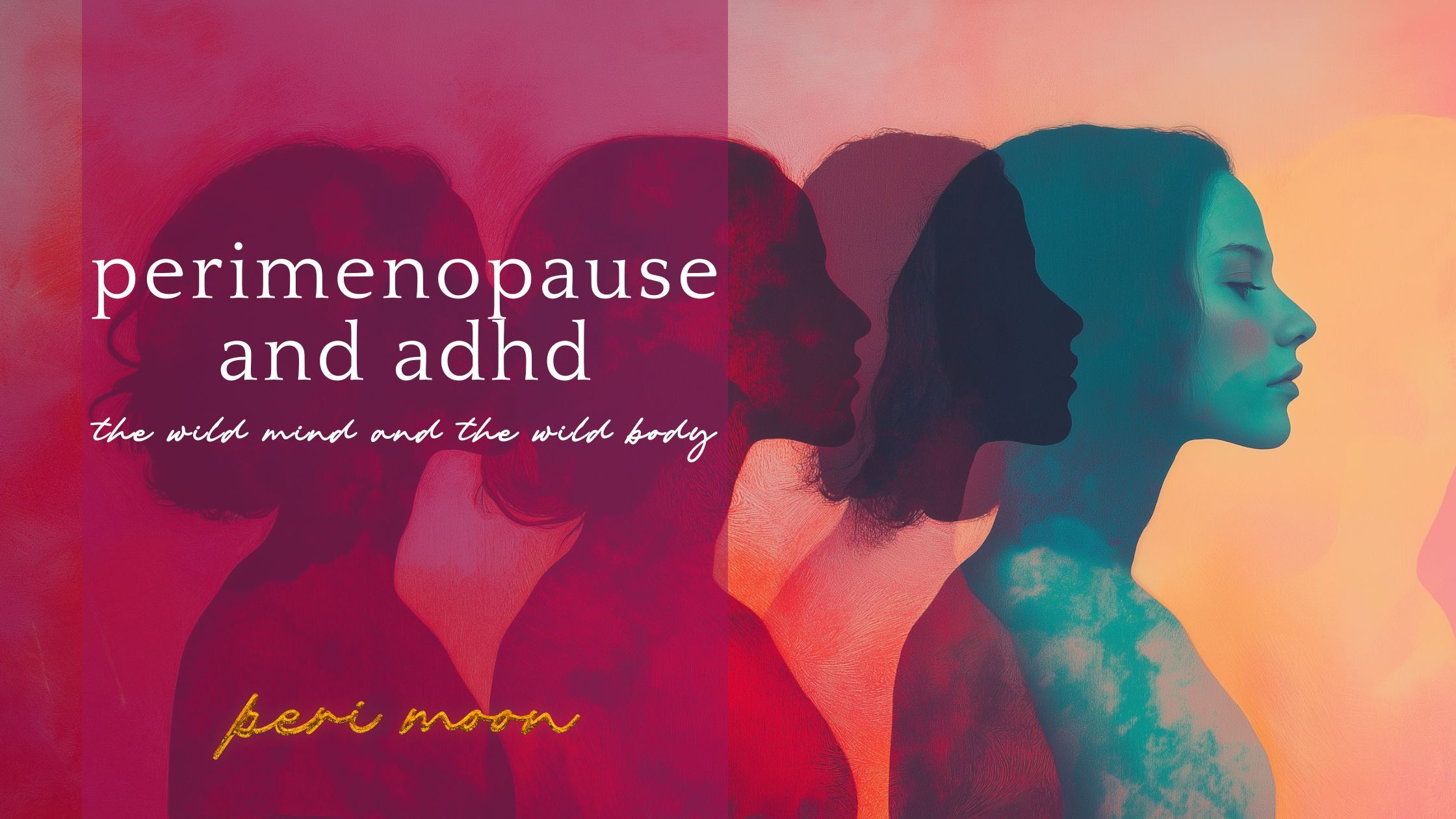Perimenopause and ADHD: The Wild Mind and the Wild Body
Feb 17, 2025
There comes a moment in perimenopause when your brain no longer feels like your own.
The thoughts that once arrived in swift succession now stumble over themselves. The sharp focus that once defined you dissolves into fog. You walk into a room and forget why. You start a sentence and lose your way before the words can land.
And if you’ve lived a lifetime with ADHD - if your mind has always been a tangle of brilliance and chaos - this transition can feel like a full-body betrayal.
But what if it isn’t? What if this is the moment your brain finally asks for what it has needed all along?
Why Perimenopause Hits ADHD Women Differently
ADHD is not just about distraction. It is about dopamine.
Your brain thrives on it, craves it, chases it. The little bursts of excitement, the thrill of a deadline, the electric spark of a new idea—that is the fuel that keeps you moving.
Now add hormones into the mix.
- Oestrogen is a dopamine amplifier—it helps regulate focus, motivation, and executive function.
- Progesterone, when balanced, buffers anxiety and promotes calm.
- Testosterone sharpens cognition and supports energy levels.
During perimenopause, all of these begin to shift—erratically, unpredictably, unapologetically. Oestrogen surges, then plummets. Progesterone fades, leaving the nervous system exposed. The delicate dopamine dance that has sustained your brain for decades starts to falter.
The result? ADHD symptoms that once felt manageable become utterly unhinged.
- Brain fog that turns conversations into scavenger hunts for lost words.
- Overwhelm that escalates into full-blown shutdown.
- Emotional dysregulation that makes minor frustrations feel catastrophic.
- Anxiety that spikes, then morphs into exhaustion.
And the kicker? Many women are diagnosed with ADHD for the first time in perimenopause, because the hormonal shifts unmask what was always there, lurking beneath coping mechanisms and sheer force of will.
The Intersection of Perimenopause and ADHD Burnout
For many women with ADHD, perimenopause is when the mask slips.
The strategies that once worked; making lists, setting alarms, forcing structure onto an untamed mind, all begin to fail. The energy reserves that carried you through chronic procrastination and last-minute miracles are gone.
And society does not make space for this unravelling.
Women with ADHD have spent a lifetime performing productivity, masking their forgetfulness, apologizing for their scattered minds, working twice as hard to prove their worth.
And now, just as the world demands that you keep up, your body is telling you to slow down.
You are not losing yourself. You are being asked to meet yourself—without the performance, without the mask, without the exhaustion.
How to Support an ADHD Brain in Perimenopause
This is not just about managing symptoms. This is about rewiring the way you care for your mind.
Here’s where to start:
1. Stabilize Blood Sugar (Seriously, It’s a Game Changer)
- Blood sugar crashes trigger cortisol spikes, which wreck focus and increase anxiety.
- Protein + healthy fats + fibre at every meal: non-negotiable.
- Caffeine on an empty stomach? Chaos fuel.
2. Prioritize Sleep Like It’s Medicine
- ADHD brains already struggle with dopamine regulation, and perimenopause disrupts melatonin.
- Magnesium glycinate before bed. A dark, cool room. A wind-down ritual that doesn’t involve scrolling.
- And if you wake at 3 a.m., try not to rage against the ceiling. Just breathe.
3. Move, But Don’t Overdo It
- Your nervous system does not need punishment.
- Strength training? Yes. Long walks? Absolutely. HIIT workouts every day? Maybe not.
- Move in ways that feel supportive, not draining.
4. Create Rhythms, Not Rigid Routines
- ADHD minds resist structure but thrive with rhythm.
- Morning anchors (sunlight, movement, protein).
- Evening cues (dim lights, a book, a slow exhale).
- Not a strict schedule—just signposts in your day to ground you.
5. Supplement Wisely
- Magnesium for nervous system support.
- Omega-3s for cognitive function.
- B vitamins for energy metabolism.
- And yes, hormone support if needed. You do not have to suffer through this alone.
The Gift of Perimenopause for the ADHD Woman
Here’s what no one tells you: perimenopause can be a liberation.
Because when the old ways stop working - when the strategies of overcompensation and self-sacrifice collapse - you have no choice but to build a new way. A way that actually honours your brain, your body, your rhythm.
You are not broken.
Your mind is wired for curiosity, for connection, for untamed brilliance. And your body, though shifting, though unpredictable, is still on your side.
The world has spent decades telling you to fit in, focus, do more, be better.
Perimenopause is here to ask you: Who would you be if you stopped trying to keep up?
Who would you be if you let yourself rest, reset, and return to yourself—on your own terms?

